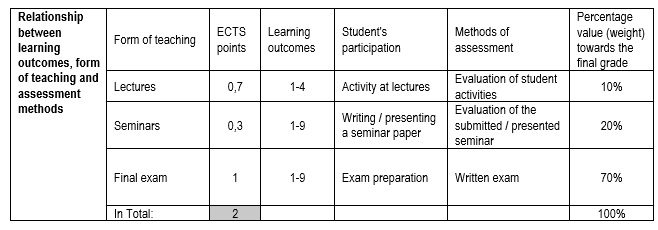Introduce the students into science methodology of analytical and critical thinking about providing health care and choosing the optimal model for a particular group of patients.
The course includes materials from the following areas: interpersonal relations, methods of analysis and evaluation, clinical supervision, learning and developing a clinical supervision strategy, skills analysis and critical evaluation of nursing practice, human resource management, planning and supervision of health care, team building, change theories and change management, health care quality management, risk management, improving work in the workplace: mentors, researchers, teachers, etc., impact of political and economic factors on the work organisation
Obavezna literatura:
- Čulig, J. Nastavni tekstovi – Menadžment u sestrinstvu. Visoka zdravstvena škola, 2003.
- Čulig, J. Zovko, V. Priručnik za procjenu radnog učinka, ZZJZ,Zagreb, 2002.
Dopunska literatura:
- Bond, M, Holland, S: Skills of Clinical Supervision for Nurses, Buckingham, Open University ress, 1998.
- Hogg, C. Patients, Powers and Politics, Sage Pubs, Ltd., 1999.
Upon completion of this course, students will be able to:
- argue the advantages and disadvantages of a particular model of health care;
- develop systems of self-assessment and evaluation of work;
- evaluate the quality system of health care;
- critically evaluate the application of prescribed skills / algorithms;
- apply ethical and legal principles in health care;
- organize evidence-based health care (EBN);
- determine the needs for professional staff in accordance with the needs for health care;
- evaluate the application of ethical principles and communication skills in health care research and practice;
- manage knowledge, decision-making and quality of health care in unpredictable conditions.



